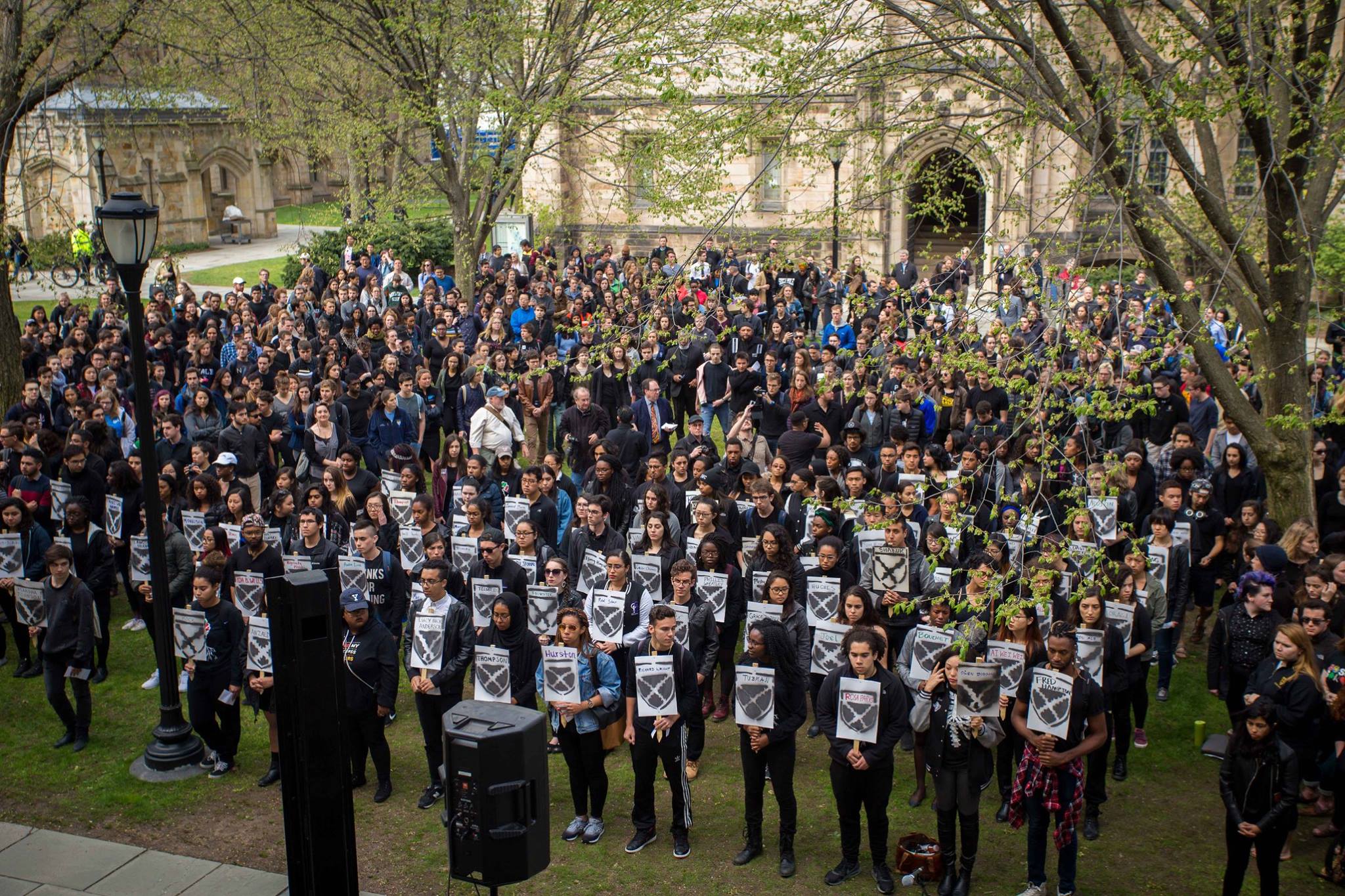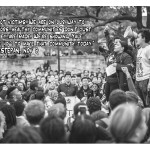by Sohum Pal
Recently, I wandered into Maya’s Room at Silliman College. I had just had brunch and I wanted to see the Love.Study.Struggle exhibition that Down was putting on. I took my time passing through the exhibition —marveling at the beauty and the joy it captured, certainly, but also absorbing the pain of the duct-taped mouths, of the steady but exhausted stances of activists as they proposed alternate names to Calhoun College. I left a little dizzied and profoundly tired.
In my experiences, solidarity demands that of us, that we collectivize the pain inflicted on a group. The function of this collectivization is that pain becomes easier to bear when it is distributed amongst a mass. At the same time, Yale is small — there are only a few students, and often we are positioned in the intersections of various axes of oppression. We have a sense that it is our personal duty to seek justice and combat these oppressions. The natural result, then, is that the same students who fight for an end to police brutality between 12 and 1:30pm find themselves protesting Atticus’s immoral labor practices at 4, squeezing in a history class at 2 where, once again, we are the only Black or brown voices in the room.
On its face, there is nothing wrong with this, of course. It is necessary work and the world improves in some small way because our schedules are arranged in just such a way. We are young and impassioned—and if we have the energy and vitality for it, we should feel empowered to proceed.
There is an ethical question, though, of whether we should be expected to endure such a grueling regimen of constant activism and emotional labor. From an ethical point of view, perhaps not (when I speak of ethics, I am not drawing on Mills or Kant—I am drawing on my conscience and my own ethical intuition). Emotional labor and activism are acts of sacrifice, demanding voluntary surrender of our time and mental energy. If there is an expectation of sacrifice, then the premise becomes self-defeating and tautological: if there is an obligation to perform an act of sacrifice, then the act is not sacrifice, but an obligated forfeiture. The expectation of activism, then, is simply incoherent.
There is a larger question, though: who holds these expectations of activism? The first answer we might provide is ourselves. This is true, of course, but is there not a secondary motivation? In my brief experience at Yale thus far, the greater reason I have found myself committing acts of excessive labor is an expectation of the community. We should recognize this key failing of the tightly-knit activist community: there is little love for others’ needs. For all the talk of self-care, I still receive a sort of disappointed and pointed shake of the head when I decline to attend a protest or a teach-in. There is some kind of aggressive desire for shared anguish in the community; it manifests in the laughing conversations of “Oh, you didn’t sleep last night? Neither did I! I was designing fliers for today’s protest and then this awful man commented on Overheard…” Plainly, this is unhealthy. We have no obligation to confront violence and pain more directly than we already do.
Activists, remember this: your presence on this campus is, in itself, a political statement — an assertion of our right to belong in a space that was not designed for us. If you cannot join us on the New Haven Green, that is okay — we will still love you. We will still accept you. You are still an activist and you still have power. You may rest without fear of the world crashing down because we stand together, in an ethical solidarity.
Take the rest you need. Return to your community, the one that demands nothing of you but your presence. Drink some tea. Head to your college pottery studio and sink your hands in clay. Watch a TV show. Read some light fiction. When you are healed and when you are ready, return to the activist community–we will welcome you with open arms.


